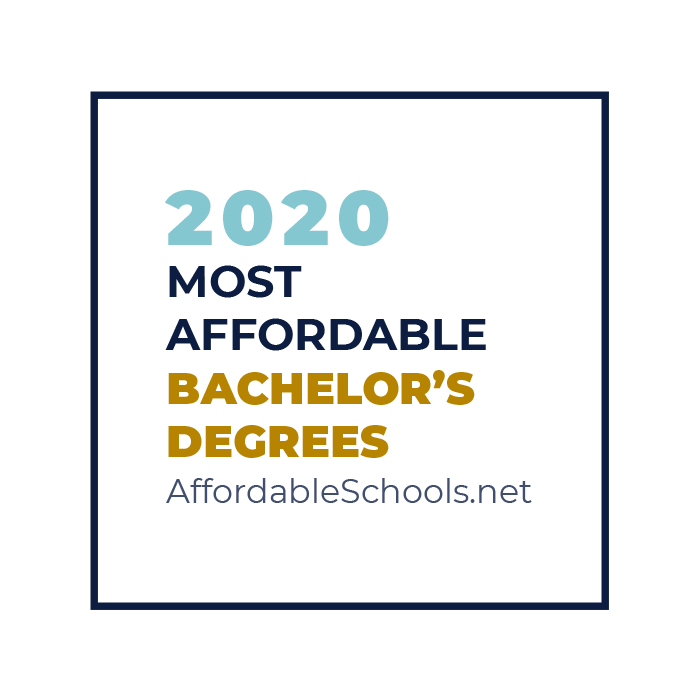Degree Title
Bachelor of Science
Summer A 2024 Start Date:
May 6, 2024
Summer B 2024 Start Date:
June 17, 2024
Overview
FIU's online Bachelor of Science in Early Childhood Development Major is a fully online program that focuses on learning and development during the early childhood years. The undergraduate degree addresses the development of the whole child. You’ll learn about cognitive, language and social/emotional development of young children, as well as general and early education theory and practices. ( Note: This track does not result in teacher certification. Licensure requirements may vary by state, which may include specific course requirements. Please check with the Department of Education where you intend to teach to confirm certification requirements. )
Take the next step.
Your undergraduate degree will prepare you for careers in childcare, child development, and early education for children from birth to age 8. FIU’s meaningful and engaging curriculum includes courses on classroom management, development, assessment techniques, family engagement, children with special needs, cultural diversity and literacy development. This degree is completely online, so you can study anywhere, anytime.
Our online courses are challenging and stimulating, and we work hard to ensure that our online students enjoy the same high quality academic experience as our on-campus students. With 24/7 technology, you can connect with other students, share documents and get real-time feedback from instructors. You’ll even have a personal success coach to guide you along the way.

-
Why Apply?
Early childhood education and development benefits children, their families and their communities. The early years of a child's life is the most critical time of growth and learning. In fact, 85 percent of a child's brain develops by age five, before a child even enters school. Early childhood specialists have a tremendous influence on shaping a child's future, helping young children to thrive, learn and transition successfully to elementary school.
Degree Objectives
The Early Childhood Development Major focuses on understanding the learning and development during the early childhood years. Students will learn about the cognitive, language and social/emotional development of young children within the context of family and community studies. Although this track and degree do not result in a teaching certification, students also learn about general and early education practices and curricula.
This program provides theoretical and practical knowledge in the following areas:
-
Educational Psychology
-
Early childhood programs and curriculum
-
Child development
-
Early social and emotional development
-
Special needs of children and their families
-
Community and young children
-
Teaching beginning literacy, math and science
FIU's B.S. in Early Childhood Education prepares students for a meaningful career focused on early childhood development. With a growing body of research that underscores the importance of early childhood education and development, there is increasing demand for high quality early care and education, and in turn, increasing demand for early childhood specialists in a variety of early childhood settings.
-
-
Courses
The Bachelor of Science in Early Childhood Education – Early Childhood Development Major, is a total of 120 credits, 60 each in both upper and lower division courses.
Professional Education Courses
There are a total of 30 credit hours taken in the area of professional education courses focusing on foundations, teaching methods and curriculum and early childhood education.
Foundations
Classroom Management EDF 3251
Provides teachers understanding, skills and dispositions for successful classroom management. Prerequisite: EDP 3004. Co-requisite: EDG 3321Cultural/Social Foundations of Education EDF 4604
Examines the cultural and social realities of teaching and learning in the U.S. Questions of class, race, ethnicity, gender and language are discussed.Educational Psychology EDP 3004
Application of principles for understanding individual differences, learning, adjustment, classroom environments and assessment to instructional and educational issues. Challenges of diversity and teacher effectiveness are addressed.General Instruction Decision Making EDG 3321
Instructional decisions facing classroom teachers including HOTS, multiple intelligence, learning styles, technology, theory and models of instruction. Co-requisite: EDF 3251
Teaching Methods and Curriculum
Art in Early Childhood EEC 3242
Principles, methods and materials for teaching music, movement, visual arts, and dramatic play in an early childhood setting.ESOL Principles and Practices TSL 3080
Introduces issues, principles and practices of teaching English to speakers of other languages.Teaching Students with Exceptionalities in Inclusive Settings EEX 3070
Focuses on the foundations of inclusive education, characteristics of students with disabilities, instructional strategies and collaboration among educators and parents.
Early Childhood Education
Early Childhood Educational Programs EEC 4005
Philosophy and theories of early childhood education programs; physical, emotional, social and cognitive development.Issues in Early Childhood Education EEC 3204
Introduces issues related to schooling of children age three through grade 3.Special Needs of Children and their Families EEC 3403
Focus on understanding family problems, children’s behavior and intervention methods.
Early Development Courses
After completing the core professional education courses, students take a total of 30 credit hours in the area of early development that includes a focus on child development, family and community studies as well as literacy, language and reading development.
Child Development
Assessment, Evaluation and Diagnosis of the Young Child EDP 4275
Intellectual, emotional and personality assessment of young children. Prerequisite: EDP 3273Child Development EDP 3273
Examination of child growth and development from conception to age 8.
Early Social and Emotional Development EDP 4274
Personality, social and emotional development in early childhood. Prerequisite: EDP 3273
Family and Community Studies
Communities, Families and Young Children EEC 3408
This course focuses on the varying cultural contexts of young children and the influences these environmental elements have on child development.Family Literacy and the Young Child EEC 3400
This course will provide an understanding of family literacy within the context of language and culture and introduce students to school and home-based literacy methods.
Literacy/Language/Reading Development
Children’s Literature LAE 4405
Focuses on the exploration of children’s literature and its role in early childhood classrooms. Current theories and methods about integrating literature into all curriculum areas from a developmentally appropriate practice perspective will be discussed.Language and Literacy Development RED 3313
Introduces linguistic elements of English, language development, emergent literacy, and their impact on L1 and L2 students.
Pre-Selected Elective Courses
Students also take 9 hours of pre-selected elective courses.
Education in History EDF 3521
An examination of the concepts of childhood, and process of social initiation in differing historical American contexts. This course examines the transformation of the American public school system as it reflects the social, political and economic character of the development of the nation from 1620 to present.Integrated Math and Science in Early Childhood EEC 4211
This course prepares pre-service teachers to understand developmentally appropriate practices in math and science for young children and apply them to real-world integrated settings.Play and Development of Social Competence EEC 3315
To examine the role of play behaviors as they relate to social competence and academic development in the early years. -
Requirements
To ensure every student’s success, we have certain admissions requirements for each of our programs. To help you through the application process, our enrollment advisors are here to answer your questions and guide you every step of the way.
Please note This track does not result in teacher certification. Licensure requirements may vary by state, which may include specific course requirements. Please check with the Department of Education where you intend to teach to confirm certification requirements.
FIU Admission Requirements
Applications are accepted for Spring, Fall and Summer terms.
Steps to Apply
First Year Students
Please submit the following:
- Online application
- $30 application fee.
- Official SAT, ACT snd/or CLT scores.
- Official high school transcripts.
Transfer StudentsPlease submit the following:
- Online application
- $30 application fee.
- Official college transcripts.
- If you have less than 60 transferable college credits, you must also submit official high school transcripts and SAT, ACT snd/or CLT scores in addition to any transcripts from postsecondary schools to the Office of Undergraduate Admissions.
Returning Students
Returning students must meet the current university and degree-specific requirements to be admitted. For more details, FIU has policies for students who left FIU.
Please submit the following:
- Online application
- $30 application fee
- Updated official transcripts
International StudentsIn addition to the above requirements, international applicants should submit:
- Official English Language Proficiency exam scores (TOEFL or IELTS).
- Official translations of any transcripts, if not in English.
- If you have less than 60 transferrable college credits, you must also submit official high school transcripts with translation.
Program Admission Requirements
The below requirements for full admission into the Early Childhood Development program may be completed at FIU.
-
A minimum lower-division GPA of 2.5 or better on a 4.0 scale.
-
60 credit hours of lower division coursework.
-
University Core/General Education or an A.A. degree from a Florida public, accredited institution.
Admission Documents
To complete the online undergraduate programs admissions form, select your program from the application form. You may complete the online application and submit it, even before taking any entrance exams. All supporting admission documents may be sent to:
Florida International University
Office of Undergraduate Admissions
P.O. Box 659003
Miami, FL 33265-9003
USA
FIU also accepts transcripts electronically via:-
Faster (All FL public institutions)
-
Naviance (Typically used by private high schools)
-
SMART/Joint Service Transcript – Military records
*Meeting the university minimum requirements does not guarantee admission
-
Tuition
We’re thrilled that you’re considering online education and want you to know exactly what to expect for tuition and fees. Education is an investment in your future. Use the following student tuition and fees calculator to determine your costs.
-
Top Faculty
Dr. Laura Dinehart, Program Developer and Faculty
Laura Dinehart is an Associate Professor of Early Childhood Education and the Executive Director of the School of Education and Human Development. Her research focuses on the developmental and early academic outcomes of young children within the context of the early care and education environment. Beyond her research, Laura has served as the Chair of the Department of Leadership and Professional Studies and Chair of the Faculty Senate Committee for Online Learning.Dr. Daniela Fenu Foerch, Program Leader and Faculty
Daniela Fenu Foerch is an Instructor of Early Childhood Education and the Program Director of the Early Childhood Fully Online Undergraduate Program within the School of Education and Human Development. Her research focuses on the nurturing of Emotional Intelligence in young children. Daniela is active in program and curriculum development. Daniela has published several articles in the area of early childhood education. Aside from her teaching and research, Daniela serves as the Principal Investigator for the QIRS and Developmental Assessment Programs at FIU.Dr. Andrea Adelman, Faculty
Dr. Adelman received her doctoral degree in Special Education with a concentration in Early Childhood, from the University of Miami. Dr. Adelman’s areas of specialization include: special education, assessment, behavioral management, family-centered practices, child development, teaching diverse students, cultural competence, and culturally responsive instruction. In addition to teaching and mentoring undergraduate students, Dr. Adelman is active in several research projects and program/curriculum development.
Dr. Adelman has conducted published research in the areas of: preservice teacher education and field experiences, effective behavioral management, connecting language and behavior in early childhood, early intervention for mild to moderate language impairments, efficacy of a merged, dual certification program for special education and elementary education, effective vocabulary strategies in early childhood, structured video observation for the purposes of professional development, and teacher training for young children with Autism Spectrum Disorder.Dr. Angela K. Salmon, Faculty
Associate Professor and Director of the Early Childhood Program at Florida International University, founder of the Visible Thinking South Florida initiative. She is Habits of Mind Certified and Consultant. Her long-standing partnership with Project Zero at Harvard University and Institute Habits of Mind has evolved into numerous research initiatives, national and international lectures, and publications. Her research interests in the interplay between cognition, language and literacy development led to research in areas like children’s theory of mind, habits of mind, executive functions, metacognition, language and literacy development, teacher’s discourse in the classroom. Her research draws from teachers’ action research initiatives that she coaches. Dr. Salmon’s work has been featured in the USA, Australia, New Zealand, Spain, Ecuador, Colombia, Puerto Rico, Dominican Republic, Panama, and other countries. She is currently chairing the 18th International Conference on Thinking.
120 Credits Required
235.57 Per Credit Hour (In-State) + Fees
648.87 Per Credit Hour (Out-of-State) + Fees
* Total tuition and fees are subject to change.
Highlights
- Fully Online Degree
- Every undergraduate student is paired with success coach
- High demand for early childhood specialists, preschool teachers, childcare workers and preschool directors
- Program starts: Fall, Spring, Summer
- Become part of an exceptional community and make the most of your education. Join the Honors College.



